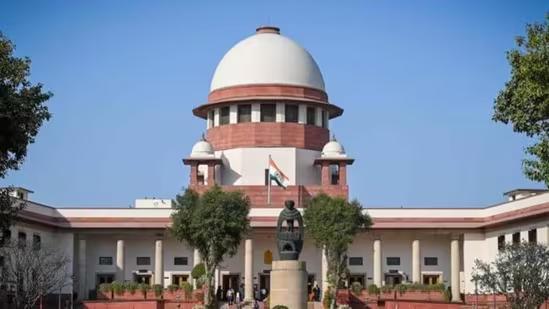
Court can’t grant assent to bills, only Guv & Prez can: Maha to SC
In a recent development, the Maharashtra government has argued in the Supreme Court that courts cannot grant assent to bills and only the Governor and President have the power to do so. This statement was made by Senior Advocate Harish Salve, representing the Maharashtra government, during a hearing on a presidential reference regarding whether the court could impose timelines for the Governor and President to deal with bills passed by state Assemblies.
The presidential reference was filed by the President of India in 2017, seeking the Supreme Court’s guidance on whether the court could impose timelines for the Governor and President to deal with bills passed by state Assemblies. The President’s reference was triggered by the controversy surrounding the Bill passed by the Maharashtra Assembly to divide the state into five regions.
The Maharashtra government’s argument is based on the principle of separation of powers, which is enshrined in the Constitution of India. According to this principle, the legislative, executive, and judicial branches of the government are separate and independent, each with its own powers and responsibilities.
The Maharashtra government’s argument is that the court cannot grant assent to bills because it is not within the court’s jurisdiction to do so. The court’s role is limited to interpreting the Constitution and laws, whereas granting assent to bills is a function of the executive branch of the government. The Governor and President have the power to grant assent to bills because they are part of the executive branch and are responsible for ensuring that the laws passed by the legislature are in conformity with the Constitution.
The Maharashtra government also argued that if the court could grant assent to bills, it would be unconstitutional and would undermine the principle of separation of powers. This is because the court would be exercising a function that is exclusive to the executive branch, thereby encroaching upon the powers of the Governor and President.
The Maharashtra government’s argument is supported by various judgments of the Supreme Court, which have consistently held that the court cannot grant assent to bills. For example, in the case of S. P. Gupta v. Union of India, the Supreme Court held that the court cannot grant assent to bills because it is not within the court’s jurisdiction to do so.
The Maharashtra government’s argument is also supported by the Constitution of India, which clearly specifies the powers and responsibilities of the different branches of the government. Article 74(1) of the Constitution provides that the President shall give his assent to bills passed by the legislature, and Article 167(1) provides that the Governor shall give his assent to bills passed by the state legislature.
In conclusion, the Maharashtra government’s argument that courts cannot grant assent to bills and only the Governor and President have the power to do so is based on the principle of separation of powers and is supported by various judgments of the Supreme Court and the Constitution of India. The court’s role is limited to interpreting the Constitution and laws, whereas granting assent to bills is a function of the executive branch of the government.






